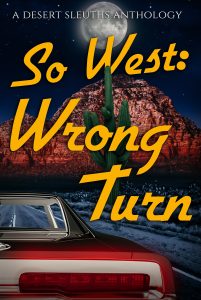Olive Kitteridge by Elizabeth Strout is next on our 100 Bestsellers List reading challenge. You can read Roberta’s kick-off description here.
This post contains spoilers.
Elizabeth Strout’s Olive Kitteridge*

(*Amazon Affiliate link)
Olive Kitteridge won the Pulitzer Prize for fiction in 2009. It was reviewed with phrases such as “Perceptive, deeply empathetic,” (O: The Oprah Magazine); “Glorious, powerful stuff,” (USA Today); “gutsy emotional punch,” (Entertainment Weekly); and “Mesmerizing,” (Tampa Tribune). And, it was liked so well that it was made into an HBO mini-series. Mesmerizing? Really?! Did they read the same Olive Kitteridge that I read?
Olive Kitteridge consists of a series of short stories involving the residents of fictional Crosby, Maine. The stories span twenty-five years and each story introduces new characters; however, in each story Olive Kitteridge herself makes an appearance. Olive is a retired middle-school math teacher who is married to the town’s pharmacist, Henry. Olive and Henry have one son, Christopher, who appears in a couple of the thirteen chapters. Olive is a very difficult person to like. She’s gruff, abrupt, and emotionally volatile. In some of the short stories we see glimmers of more positive characteristics, but throughout the book, Olive rarely takes the high road in any situation and rarely sees the positive in any situation.
Small Town Lives
The small town lives that author Elizabeth Strout presents are sad, depressed, and lonely – lives filled with jealousy and adultery. Only rarely are we given glimpses of love, hope, faith, happiness. I have spent the majority of my life living in small town America and it saddens me to think that people reading Olive Kitteridge will believe that fictional Crosby is representative of small town life. Yes, people in small towns can be petty and it is impossible to avoid the rumor mill. Adultery does exist, as does suicide, another running theme throughout Olive Kitteridge. But my experience is that small town America is also filled with hopeful, helping, optimistic, and loving people. It is possible in small town America to live a good and happy life, positively affecting those around you and bettering the world. Olive Kitteridge shows us none of that.
It was only the very last chapter that I felt made the book possibly worth reading. In the last chapter, Olive overcomes her fears and loneliness to reach out to another, admitting that she needs love, even admitting to herself that she squandered the love she had with her husband Henry. Only in the last chapter did I feel there was any real character growth. Maybe it took twelve chapters to show us the true Olive, warts and all, so we could appreciate her choice in the final chapter? For me, it wasn’t enough.
What did you think of Olive Kitteridge? We’d love to hear your thoughts!
- Olive Kitteridge landing page
- Book-beginnings, a discussion of the first line of the novel
- Roberta’s review from a writer’s perspective
After you finish the book, you might want to drop by to take our survey.
You can also join us on social media:
- The Bestseller Code 100 Pinterest Page
- Twitter: #BestsellerCode100
- Facebook: Bestseller Code 100 Reading Group
- The full list is now posted on GoodReads
Do you have suggestions for ways to improve this reading challenge? We’d love to hear them.
_________________
What are we reading next?
If you ever have questions about what we are reading next or when we’re starting the next discussion, check the 100 Book List tab in the navigation bar at the top of the blog.
The next book is number 92 on the list, One Day by David Nicholls (2009) – Discussion begins February 27, 2017. This books is classified as Contemporary Fiction.




Having also grown up in a small town, I have to agree with your assessment of Strout’s artificial small town America.
“Rarely takes the high road in any situation” says it all.
Thanks for the review, Karen. I have read the first chapter and couldn’t bear to start the second right away. Now I know why – I really don’t like short stories!
I’m not a big fan of them either, Carol. It seems like you no more than get attached to a character and Poof! They are gone! Thanks for your comment.